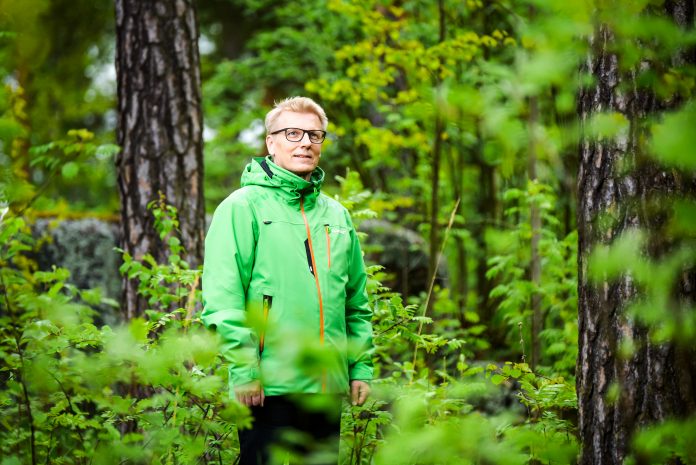In this special interview, Kimmo Tiilikainen, Minister of the Environment, Energy and Housing speaks to Open Access Government about his government’s priorities for energy efficiency and climate change in Finland and beyond
Finland’s Kimmo Tiilikainen, Minister of the Environment, Energy and Housing spoke to Open Access Government about his government’s priorities for energy, environment and climate change in Finland and Europe. As the interview begins, the Minister shares his thoughts on the extent to which efficient energy use is an excellent way to save money and the environment, as well as to mitigate climate change.
“Energy efficiency is a necessary part of Finland’s fight against climate change and it is also a very attractive part because you can save on energy and avoid the harmful effects of energy production. From consumers to enterprises, energy efficiency can pay itself back very quickly, often within a couple of years.
“I would like enterprises in Finland to become more interested in energy efficiency because it is a necessary part of climate policy.”
The conversation then turns to detail Minister Tiilikainen’s views on the European Union’s 2030 Energy Strategy, which includes European Union (EU)- wide targets and policy objectives for 2020 up to 2030. In June this year, we know that the compromise reached on the Energy Efficiency Directive (EED) will set a common, non-binding energy efficiency target for 2030 of at least 32.5% compared to the baseline scenario. The EU Member States will be obliged to increase their annual energy savings by 0.8% for the period 2021–2030.
In June, Minister Tiilikainen explained his views on the voluntary energy efficiency agreements between the state, local authorities and business and industry, which aim to generate much of the required energy savings by 2020. “Efficient implementation of these agreements in companies and municipalities will play a key role in Finland’s future ability to meet its obligations under the directive”, he said.
Minister Tiilikainen then tells Open Access Government about his satisfaction concerning these voluntary energy efficiency agreements and explains that an improvement that was made to this policy during June 2018. Going into more detail, the Minister explains that it raised the ambition at the EU level concerning both renewables (32% of energy use) and improvements in the annual energy savings obligation of 0.8% to the final energy use of Member States. This is a development the Minister warmly encourages.
“With such improvements, we make EU decisions more powerful than their original proposal intended to. I think that the EU Member States and European Parliament have made good progress in this respect.
Keeping this in mind, by 2030 it is expected that energy from renewable sources should account for 32% of energy use and that 18% of the target should be reached by 2022, 43% by 2025 and 65% by 2027.
Staying on the European theme when it comes to energy efficiency and climate change policy, the Minister goes on to explain why he thinks it is good that the European Commission will monitor both the progress in the EU’s common energy and climate targets and the Member States’ contribution to reaching a common goal. These issues here are really important, and the targets are tremendously challenging in this respect, the Minister underlines.
“With this improved level of ambition to reach the targets that have been set, it is really important that each Member State plays their part. Monitoring the achievements of each Member State will encourage them to do better and compare the steps to be taken. This follow-up is important because we can really be sure that the EU will fulfil its promises under the Paris Agreement.
“A very important part of this monitoring and following this common effort is the delivery of long-term climate and energy strategies concerning 2030. The EU has long-term energy and climate targets strategy for 2050, but at the same, it is important to ensure that there are in line with Finland’s long-term target to reach carbon neutrality by 2045”.
During Austria’s EU Presidency which began in July 2018, the focus of this work concerns the clean energy package where there will be legislation concerning the internal electricity market, a point that Minister Tiilikainen keenly details as the interview draws to a close. Indeed, we know that Finland firmly supports proposals based on both open market and price formation. Austria, for example, is doing their best to put this forward.
“In the Nordic countries, we have had a couple of decades where there has been a common electricity market and it has been essential in terms of promoting renewables and seeking energy efficiency. I think we can deal with our internal electricity market by ensuring that the role of consumers will increase and that we make the best use of Finland’s Smart Grid in terms of flexibility for the consumer.
“When the amount of renewable energy used increases, it is important that we have a market that will provide electricity on demand. And a flexible and functioning market are both important steps in that.”
Kimmo Tiilikainen
Minister of the Environment, Energy and Housing
Ministry of Economic Affairs and Employment of Finland
Tel: +358 29 516 001
https://tem.fi/en/minister-for-housing-energy-and-the-environment











